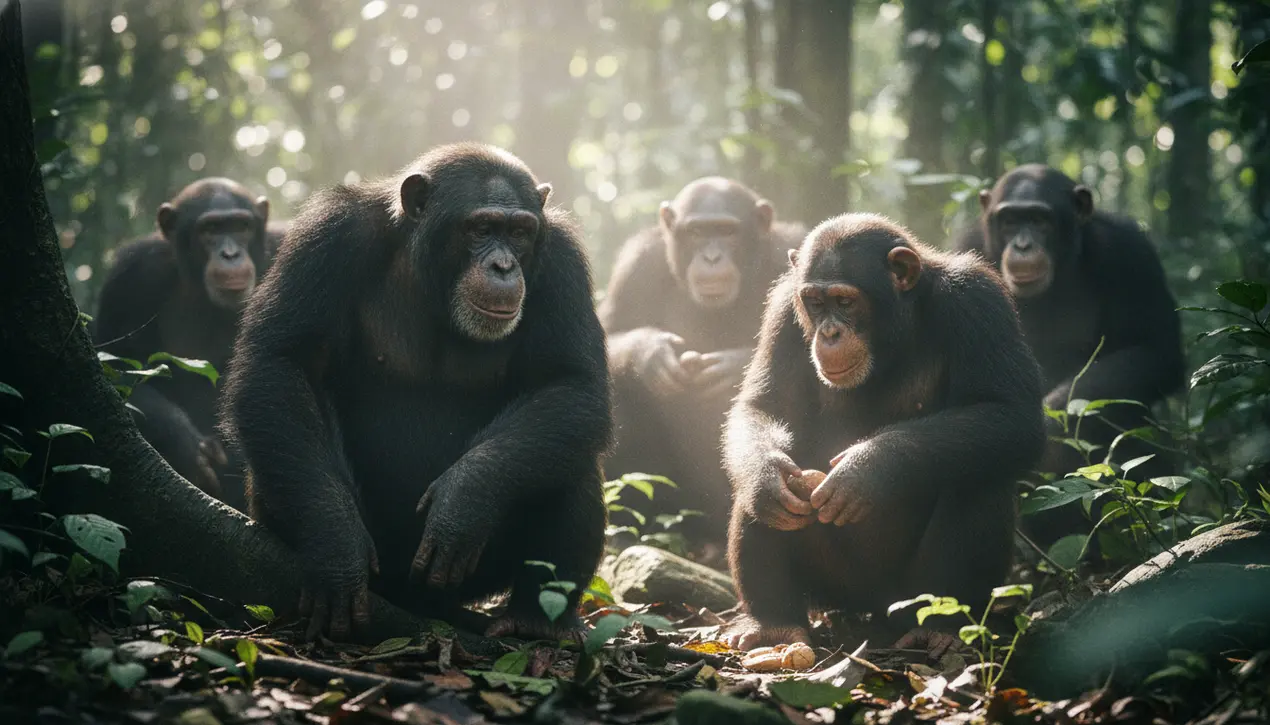
SciencebiologyAnimal Behavior
The evolution of rationality: How chimps process conflicting evidence
RA
Rachel Adams
2 hours ago7 min read3 comments
In the dense, humid forests of Central and West Africa, a quiet revolution in our understanding of animal cognition is unfolding, one that challenges the very foundations of what we thought separated us from our closest living relatives. Recent research into chimpanzee behavior reveals a cognitive toolkit far more sophisticated than previously credited: the ability to process conflicting evidence, weigh new information against established beliefs, and subsequently change their minds.This isn't mere instinct or simple conditioning; it's a form of rational decision-making that echoes the complex processes we pride ourselves on as humans. Scientists observing communities in Tanzania's Gombe Stream National Park and the Tai National Park in Côte d'Ivoire have documented chimps encountering novel situations—such as the discovery of a new food source that contradicts their traditional foraging maps or the subtle, conflicting social cues from a troop's alpha male.Instead of rigidly adhering to a pre-set course of action, these primates pause, assess, and integrate the new data. They might watch a subordinate female successfully crack a nut with a technique they'd dismissed, or hear a specific alarm call that conflicts with their visual assessment of a predator's threat level.In these moments, they are not just reacting; they are evaluating. The strength of the new evidence is critically appraised.Is the source reliable? Is the reward significant enough to warrant a shift in strategy? This cognitive flexibility is a survival mechanism honed by millennia of ecological pressure, a dynamic calibration that allows them to thrive in ever-changing environments. For biologists and ecologists like myself, this is a profound reminder of the deep, shared evolutionary roots of rationality.It forces us to look beyond the human-centric view of intelligence and recognize that the capacity for nuanced thought, for doubt and subsequent course correction, is woven into the very fabric of the animal kingdom. This discovery carries an emotional weight, a poignant reflection on our own place in the world.As we continue to push species to the brink through habitat destruction and climate change, we are not just losing biodiversity; we are silencing minds capable of a form of reason we are only beginning to comprehend. The chimps' ability to adapt their thinking in the face of new evidence stands as a stark, sobering lesson—one we, as a species grappling with overwhelming environmental data, have been tragically slow to learn ourselves.
#chimpanzees
#cognition
#decision-making
#animal intelligence
#featured
#evolution
#behavior
Stay Informed. Act Smarter.
Get weekly highlights, major headlines, and expert insights — then put your knowledge to work in our live prediction markets.
Related News
Comments
Loading comments...
© 2025 Outpoll Service LTD. All rights reserved.